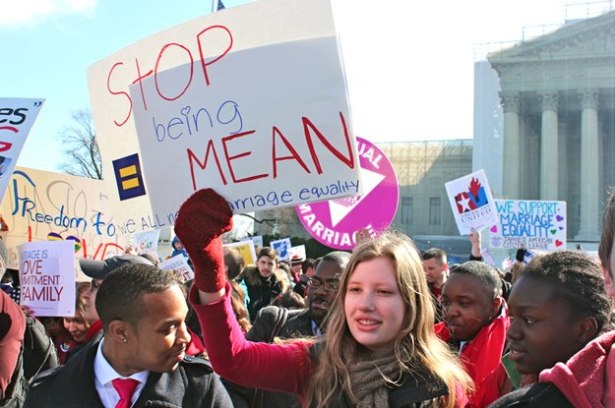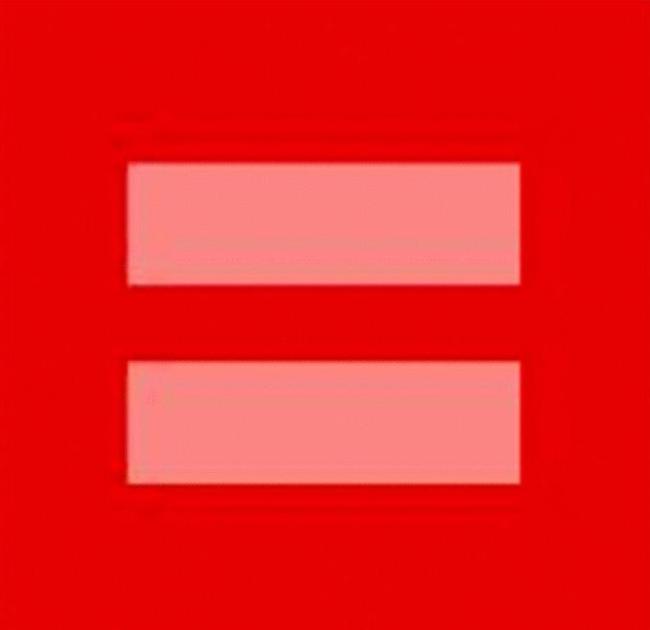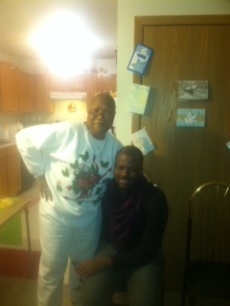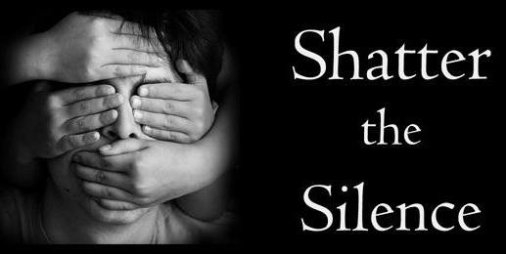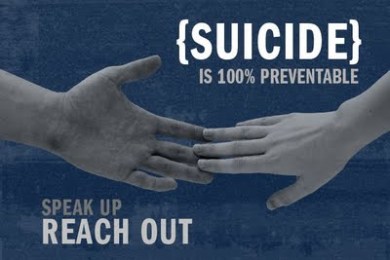The Equal Protection Clause, part of the Fourteenth Amendment to the United States Constitution, provides that, in pertinent part, “[N]or shall any State . . . deny to any person within its jurisdiction the equal protection of the laws.”
Marriage is a legal contract licensed by states which confers certain rights and benefits upon married people (e.g. special estate tax benefits, filing joint tax returns, etc). Denial of those benefits by prohibiting consenting adults to marry, and only allowing opposite-sex couples to marry, is in direct violation of the 14th Amendment. The 10th Amendment does not usurp this power.
I support marriage equality. What I support more, however, is the concept of an inclusive Constitution that protects all marginalized groups. Yesterday, I found myself emotional after witnessing the LGBT community and allies rallying for marriage equality in Washington, DC. Afterward, unfortunately, I allowed myself to enter an interesting debate with a Facebook friend regarding her opposition to “gay marriage” [which has always bothered me since I am not a fan of using “gay” as an umbrella term]. The reasoning behind her opposition was religion. She said, in essence, that in her marriage, she needs herself, her husband, and God.
“Beautiful,” I thought.
Nevertheless, I was confused on how she thought it was logical that her religious viewpoints should be imposed on the lives of others. She proceeded to tell me that the State had nothing to do with her marriage.
Like it or not, from a legal sense, the State has everything to do with your marriage. On many occasions, I have engaged in debates with people who say since marriage is an inherently religious institution, they are in favor of civil unions and domestic partnerships, but not marriage. I, however, find this argument to be dangerous and broad, especially since it implies that ‘marriage’ is nothing more than a label. First, the institution of marriage has existed long before any religion “copyrighted” its concept. Second, even if marriage is a religious institution, are some gays and lesbians not religious? Third, recognizing a couples’ marriage legally is more than label, especially considering that over one-thousand benefits flow therefrom.
While I think marriage is an inherently unequal structure, SCOTUS determined, in Loving v. Virginia, that the right to marry is a fundamental right; therefore, this right should extend to same-sex and opposite-sex couples alike. Some argue, however, that Loving only applies to heterosexual couples, but this is untrue. SCOTUS did not say “the right to marry is fundamental only if you are straight.” On the contrary, SCOTUS held that “[t]he freedom to marry has long been recognized as one of the vital personal rights essential to the orderly pursuit of happiness by free men.” This was not limited to a persons’s sexuality.
It is troublesome when someone is so entrenched in their own thought-process that they refuse to see how they are infringing on the rights of everyday citizens. Everyone has a right to their own opinion, but when your opinion begins to negatively affect the civil rights of your counterparts, is when opinions become problematic. If you are an opponent of marriage equality, though I vehemently disagree with you, you have the right to that opinion just like I do. Nevertheless, I wish it was based on law and policy since we are ultimately speaking of a legal contract and equal protection principles, as opposed to hearing why your values from the Bible [or other religious text] should infringe on the individual rights of gays and lesbians.
In my debate yesterday, my Facebook friend proceeded to explain how the purpose of marriage was for procreation, which intrigued me. I immediately responded, “How is marriage only a fundamental right because of procreation when SCOTUS has held that procreation and marriage are two separate and distinct fundamental rights?” I encouraged her to read Loving and Skinner v. Oklahoma [which seemingly intersects marriage and procreation, but still separates them as distinct fundamental rights].
Furthermore, this procreative argument fascinates me, especially since discriminating against infertile and elderly couples, who are unable to procreate, would be reprehensible. Quite frankly, the procreation argument seems a bit patriarchal and a sign that the only importance of marriage is a woman bearing children, which certainly is not a sign of preservation. But alas, SCOTUS has only had four women since its inception, so patriarchy abounds.
There is one reason the government would attempt to legislate against marriage equality: animus against gays and lesbians.
Maintaining tradition for tradition sake is not rational. In fact, please view this line of questioning between Justice Sonia Sotomayor and Charles Cooper, Esq., counsel for Petitioners in Hollingsworth v. Texas:
Justice Sotomayor: “Outside of the marriage context, can you think of any other rational basis, reason, for a State using sexual orientation as a factor in denying homosexuals benefits or imposing burdens on them? Is there any other rational decision-making that the Government could make? Denying them a job, not granting them benefits of some sort, any other decision?”
Mr. Cooper: “Your Honor, I cannot. I do not have any – anything to offer you in that regard.”
Even someone who has not taken a single Constitutional Law course could explain that not being able to offer any rational argument for discriminating against gays and lesbians means that no argument exists. Constitutionally speaking, rational basis is the lowest standard of judicial scrutiny, and if there is no argument to rebut that, then your argument is effectively null-and-void. An original intent approach, while understandable theoretically, can only lead to disastrous public policy in an ever-changing America. Without recognizing that laws exist outside of the original intent, slavery would have never ended and places of public accommodation would continue to be segregated.
Though I am not a fan of organized religion – or any other institution that seems to denigrate the “other” – I respect the rights of anyone to have religious beliefs. Not only do I support that, but our Constitution requires it. Our First Amendment provides, in pertinent part, “Congress shall make no law respecting an establishment of religion, or prohibiting the free exercise thereof . . . .” While our Free Exercise Clause gives individuals the ability to practice a religion of their choice without government intrusion, under the Establishment Clause, the Constitution also requires that our laws cannot solely be based on religion that everyone must follow. Point is, whether God is in your religion, you cannot force God, or the rules of your religion, onto others.
Fact is, marriage equality should not be legislated or judicially scrutinized under the framework of “God” or “religion.” Marriage is the right of consenting adults to enter into a union with the State. While it exists, it must be equal. Marriage, in and of itself, is not an institution of church, but you can allow it to be in yours. Many people get married in our country that have no belief in God, religion, and can simply get a marriage license at the downtown courthouse.
This morning, my good friend Tara Pringle Jefferson [Founder/Editor of “The Young Mommy Life”] had a supportive Facebook status about marriage equality (bravo, Tara)! Unfortunately one of her friends was not so supportive, stating, “I don’t agree with their lifestyle choices,” which she defined as “homosexual sex.”
I responded, “Make no mistake about it. I choose to be with someone of the same-sex, but I was gay long before I ever engaged in sexual intercourse just like you were straight before you engaged in sexual intercourse. Sexuality is your feeling of intimacy; sex is the physical act of that intimacy. I don’t agree with dogma, so I will never find homosexuality to be a sin. But if it is one in your mind, and you truly feel like “one sin isn’t greater than another,” then let’s not only analyze the ones that we don’t “do.” Sins are interesting because people choose to mention them based on the level of intensity, according to whether or not they do it.”
From my understanding, God loves all of me, and not half of me. This means that God loves me – Black, gay, and all.
Yesterday, while I was outside of the Supreme Court building, I witnessed an historic moment – one I will never forget. Thousands of LGBT individuals and allies gathered to stand in solidarity for marriage equality. We can debate for hundreds of years about whether this is the ‘proper time’ for this civil right, but my gut tells me that the time for civil rights is always now. We must continue the fight for employment, mental health and suicide prevention, health care reform, poverty, and homelessness, among others. But this, too, is an important moment.
I share this because whenever my identity is being legislated and judicially scrutinized, I will fight. I will fight for myself, and I will fight for others who have yet to realize the power behind their voice. Marriage equality is important, not only for those who have the fundamental right to be married under our nations’ laws, but for society as a whole. I fight because I love myself. I fight because my rights are important, too, even if I choose not to exercise them. I will fight because we do not live in a theocracy.
